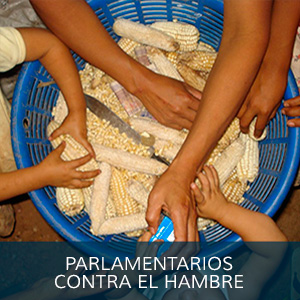Languages
Saturday, April 20, 2024
News and Views from the Global South
Parliamentarians working to meet SDG's

Art Helping Women to Highlight Gender-based Violence at ICPD25
While women find it hard to talk about their painful experiences, some have found a way of expressing themselves through art. Women, trained as artists, from Nairobi’s informal settlements Kibera and Kangemi, have produced a beautiful quilt that tells stories about their daily challenges.
This Time Around ICPD25 Commitments Will Be Met Says UNFPA …

Young People at ICPD25: ‘ We Have the Right to Sexual and Reproductive Rights’
Every day in developing countries it is estimated that 20,000 girls under the age of 18 give birth. This amounts to 7.3 million births a year.
World Youth Call to Governments to Ban All Hindrances to LGBTQI Communities
Governments across the world must ban all state-implemented harmful practices against the Lesbian, Gay, Bisexual, Transgender, Queer and Intersex (LGBTQI) community delegates at the ICPD25 tells IPS.
ICPD25: Lessons From the East
The Japan Parliamentary Federation for Population represented by Mr Teruhiko Mashiko and its secretariat, the Asian Population and Development Association (APDA) has made a clear and concrete commitment to endorse the ICPD25 agenda. Mashiko tells IPS that Japan, as should every country driven by the well-being of its population, should create the best possible conditions to achieve the ICPD25 agenda.
Women with Disabilities Speak out Against Exclusion at ICPD25
One in five women globally lives with a disability even as they have same needs and interests as women without disabilities, their access to sexual and reproductive health services and rights remains severely limited.
Forced Child Marriage Must Be Stopped Says South Sudanese Child Activist

Cairo Dream Requires $264 Billion to Deliver Women’s Call for Justice and Bold Leadership
For each of the 830 women dying each day from pregnancy complications and childbirth, an estimated 20 others suffer serious injuries, infections or disabilities. This is the reality that millions of women face, and informs the Nairobi Summit’s three critical commitments which are to bring preventable maternal deaths, gender-based violence and harmful practices, as well as unmet need for family planning, to zero. To achieve this objective money is needed.
Nairobi Summit to Redouble Efforts to Urgently Deal with Reproductive Rights for Women and Girls
More than 6 000 delegates in the population development sector are gathering in the Kenyan capital of Nairobi this week to renew the promise made to girls and women 25 years ago in Cairo.
When is Universal Health Coverage Good for Attaining Universal Sexual and Reproductive Health and Rights?
This is a special year for all rights-based health advocates, as we celebrate 25 years of the International Conference on Population and Development (ICPD).
Call to Action as Thousands Breathe New Life to the Cairo Promise at ICPD 25 Summit in Nairobi This Week
Every day 830 women die while giving life. At least 33,000 girls are forced into child marriage with 11,000 girls undergoing female genital mutilation. These are some of the cruel realities young women face every day. However, there is renewed hope that delegates expected to attend the International Conference on Population and Development (ICPD) in Nairobi this week will re-energise and breathe new life to the Cairo Promise.
The Nairobi Summit Is about the Future of Humanity and Human Prosperity
As we count down the remaining days to the opening of the Nairobi Summit or the International Conference for Population and Development(ICPD), I am confounded by how much humanity has managed to simultaneously empower more women than at any other time in history, while at the same time failing to see that ‘women’s issues’ are actually ‘everyone’s issues’.
Abortion Remains an Unresolved Issue: ICPD25 Meeting next Month
Currently, the topic of abortion as human rights leaves the world bustling. When the state of Alabama1 in the United States enacted a very strict ban on abortion, it shocked the world. This prompted so-called conservative movements, led by female business owners, to make a full-scale advertisement in the New York Times claiming abortion is a human right2 ; hence the global debate between pro-life and pro-choice.
Asian & Arab Parliamentarians to Move Forward on Reproductive Health & Gender Empowerment
Over the years, the UN Population Fund (UNFPA) has worked in tandem with legislators and parliamentarians to help implement the historic Programme of Action (PoA) adopted unanimously by over 20,000 UN delegates at a landmark International Conference on Population and Development (ICPD) in Cairo back in 1994.
“The African and Asian Parliamentarians’ Meeting on Population and Development: Creating Positive Impacts for ICPD+25 and SDGs”
The Asian Population and Development Association (APDA) organized the “African and Asian Parliamentarians’ Meeting on Population and Development for ICPD+25” on August 5 - 6, 2019, in Dar es Salaam, Tanzania, to serve as a platform to gather the opinions and set of proposed actions of parliamentarians in the Asia and Africa regions.
To Uplift a Woman is to Uplift a Village
Khadija Zuberi, 23, from Ruaha Mbuyuni village in Tanzania’s central highlands, is a single mother to her four-year-old son, Hashim.
The Fight to End Violence Against Women in the Asia-Pacific Region
Parliamentarians met in Laos last week to discuss violence against women and girls. The meeting was organized by the Asian Population and Development Association (APDA) and hosted by the National Assembly of Laos.
Partnering for Youth in Central Asia
Young people around the world are facing increasingly insurmountable, persistent barriers as they try to achieve their full potential and secure a prosperous future. However, Central Asia and the Asia-Pacific have already begun working to ensure that no one is left behind.
Parliamentarians Promote Youth Investment in Kazakhstan
Parliamentarians from 36 countries met this weekend in Astana, Kazakhstan, to discuss the future of youth in Central Asia and the Asia-Pacific region. The gathering called “International Conference on Investing on Youth: Leaving No One Behind” took place on the Oct. 19 to 20, and the goal was to advance the Sustainable Development Goals (SDGs), set by the United Nations, with regards to youth.
El Salvador Forges Ahead in Fight Against Hunger

Searching for Nutrition in South Africa’s Food Maze
Every Tuesday, there is something unusually exciting at no 7 Cwango Crescent, The Business Place, in Philippi, near Cape Town. Here, dozens of chemically free green vegetable crate loads are visible. So are the unlabelled rows of empty packets. It’s the packing day.« Previous Page — Next Page »














